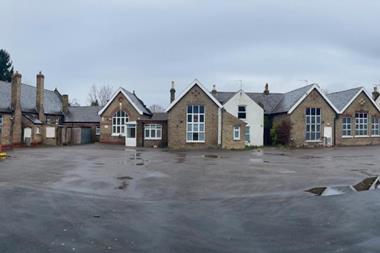It has been apparent for some time that the real estate industry is fundamentally changing, with the data revolution permeating all areas of the built environment. The impact has been particularly powerful in the world of auctions, where we have seen the online model challenging the traditional ballroom auction.

The benefits of the digital platform – especially for vendors – are profound and provide insight and security that go well beyond the industry standard. The transparency created through data is revolutionising an area of the property industry that, for many, was previously shrouded in mystery.
In particular, the steps BidX1 and other auctioneers have put in place around legal compliance and anti-money laundering regulations offer an extra layer of security and confidence for vendors. This is particularly important as legislation from HMRC becomes increasingly rigorous.
The registration process includes uploading proof of identification, address and source of funds. At BidX1, we have taken security for the vendor one step further, by facilitating a level of bidder commitment in the form of a ‘bidder deposit’. This is a pre-payment that is relative to the property’s guide price. If the interested party is unable to submit the deposit before the auction, they will not be authorised to place bids. This process ensures that all bidders at the point of registration have skin in the game and are incentivised to bid on the day.

While the ability to support compliance is a huge benefit, perhaps the most interesting factor is the insight gleaned through the data captured. Each step of the process is recorded, and unlike a traditional auction, we know exactly who is in the metaphorical room. We can see where interest has been logged and can engage with bidders directly to facilitate a sale. By generating real-time data – combined with property performance statistics, emerging trends, buyer profiles and bidder locations – we can also monitor the vendor’s portfolio against industry trends.
The use of data does not end with the auction itself but continues to provide valuable insight beyond auction day. When a property doesn’t sell, perhaps because the reserve price was set based on a third-party independent valuation, our visibility allows us to market-test the valuation and drop the price accordingly. We can then offer re-runs of the auction at a later date.
While digital auctions retain many similarities to the traditional model – such as legal due diligence and deal lifecycle, which takes the vendor from initial instruction to fall of the digital hammer in eight weeks – there are additional benefits. The digital model is much more flexible. As we are not reliant on fixed dates for booked rooms, we are able to organise auctions or re-offer lots immediately and at the vendor’s convenience. We can also ascertain pricing pinch points, removing any guesswork from the process.
Innovation and digitisation are extremely important and provide myriad benefits to those selling at auction.
Oliver Childs is head of commercial auctions at BidX1
Guide to auctions
- 1
- 2
- 3
- 4
- 5
 Currently reading
Currently readingThe myriad benefits of the digital auctions revolution
- 6
- 7
- 8
- 9






































No comments yet